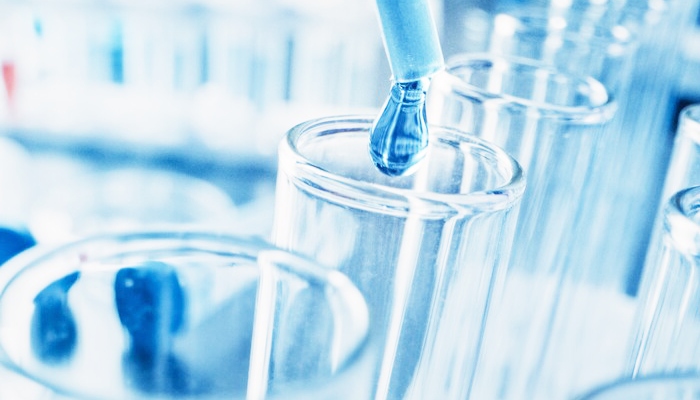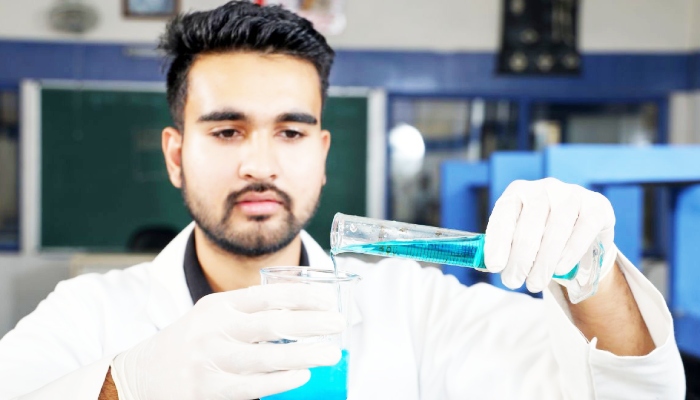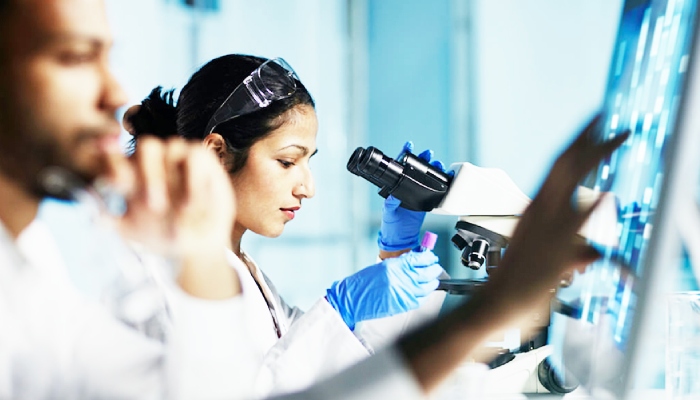Innovations in Pharmaceutical Science the Chemist’s Perspective
The pharmaceutical industry is at the forefront of medical advancements, continually evolving to meet the ever-growing demands of global health. In recent years, innovations in pharmaceutical science have revolutionized the landscape of drug discovery and development. These advancements have been driven by the relentless pursuit of improving patient outcomes and enhancing the quality of life through more effective and targeted treatments.
Pharmaceutical companies are investing heavily in research and development (R&D) to bring new drugs to market faster and more efficiently. The integration of advanced technologies and novel approaches in pharmaceutical research has opened new avenues for creating innovative therapies. From the discovery of new molecular entities to the development of sophisticated drug delivery systems, the field is witnessing unprecedented growth.
Medicinal chemistry, a core discipline within the pharmaceutical sciences, plays a critical role in the drug discovery process. Chemists, who are the backbone of this industry, apply their expertise to design and synthesize new compounds that have the potential to become life-saving medications. Understanding what a chemist does in the context of pharmaceutical research is essential to appreciating the complexity and ingenuity involved in bringing a new drug to market.
In this article, we will explore the latest innovations in pharmaceutical science from the chemist’s perspective. We will delve into groundbreaking developments in drug development and delivery systems, the rise of personalized medicine, and the impact of emerging technologies on pharmaceutical research. By examining these key areas, we aim to provide a comprehensive overview of the transformative changes shaping the future of the pharmaceutical industry.

Breakthroughs in Drug Development and Delivery Systems
The journey of drug development has always been marked by significant challenges and complexities. However, recent breakthroughs in this field are redefining the paradigms of how drugs are discovered, developed, and delivered. The integration of cutting-edge technologies and innovative approaches has led to remarkable advancements, making the process more efficient and precise.
Professional chemists, with their deep understanding of chemical processes, are at the heart of these innovations. Their expertise in small molecule drug discovery is pivotal in identifying and developing new therapeutic agents. Small molecules, due to their ability to modulate specific biological pathways, remain a cornerstone in the development of new medications. Chemists employ sophisticated techniques to design and synthesize these molecules, ensuring they exhibit the desired biological activity and safety profiles.
One of the most transformative technologies influencing drug development today is artificial intelligence (AI). AI is revolutionizing the pharmaceutical industry by significantly accelerating the drug discovery process. By analyzing vast datasets and predicting the properties of potential drug candidates, AI enables chemists to identify promising compounds more quickly and accurately. This reduces the time and cost associated with bringing new drugs to market, ultimately benefiting patients with faster access to innovative treatments.
The American Chemical Society (ACS) has been instrumental in supporting and disseminating knowledge about these advancements. Through conferences, publications, and collaborations, the ACS provides a platform for professional chemists to share their research and stay updated on the latest trends in drug development. This collective effort fosters a collaborative environment where new ideas and technologies can thrive.
The pharmaceutical industry began to see a significant shift towards more sophisticated drug delivery systems as well. These systems are designed to enhance the efficacy and safety of drugs by ensuring they reach the targeted site of action in the body with optimal concentration. Innovations such as nanoparticles, liposomes, and other advanced delivery vehicles are being developed to improve the bioavailability and therapeutic outcomes of drugs.
These advancements in drug development and delivery systems are largely driven by the collaborative efforts of professional chemists and the integration of new technologies like AI. As the pharmaceutical industry continues to evolve, these innovations promise to bring about more effective and personalized treatments, heralding a new era in healthcare.
Advancements in Personalized Medicine
Personalized medicine represents a transformative shift in the pharma industry, focusing on tailoring medical treatments to individual patient characteristics. This approach leverages advancements in genomics, biotechnology, and medicinal chemistry to develop therapies that are more effective and have fewer side effects.
Medicinal chemists are at the forefront of this revolution, identifying specific drug targets based on genetic and molecular profiles. By understanding the unique biological makeup of each patient, chemists can design medications that precisely interact with these targets, improving treatment outcomes. This targeted approach not only enhances efficacy but also significantly contributes to medication safety by minimizing adverse reactions.
In the pharmaceutical industries, the integration of sophisticated technologies such as nuclear magnetic resonance (NMR) spectroscopy has been pivotal. NMR allows for the detailed analysis of molecular structures, enabling chemists to optimize drug candidates more efficiently. This precision in drug design is crucial for developing personalized therapies that are both safe and effective.
Furthermore, the pharma industry is adopting advanced manufacturing processes to support the production of personalized medicines. These processes ensure that medications are produced to the highest standards, maintaining consistency and quality. Innovations in manufacturing, including the use of automation and real-time monitoring, help in scaling up the production of personalized treatments while ensuring their safety and efficacy.
The collaborative efforts of medicinal chemists, biotechnologists, and pharmaceutical companies are driving the advancements in personalized medicine. As these stakeholders continue to innovate and integrate new technologies, the future of healthcare is set to become increasingly personalized, offering patients treatments that are specifically tailored to their individual needs. This shift towards personalized medicine promises to enhance the overall effectiveness of therapies and improve patient outcomes significantly.

Emerging Technologies in Pharmaceutical Research
The landscape of pharmaceutical research is rapidly evolving, driven by the integration of emerging technologies that enhance the efficiency and precision of the drug development process. Academic institutions, including renowned organizations like the Scripps Research Institute, are at the forefront of these advancements, collaborating closely with the pharmaceutical industry to push the boundaries of what is possible in drug discovery and development.
Machine learning (ML) is one of the most impactful technologies transforming pharmaceutical research today. By analyzing vast datasets, ML algorithms can identify patterns and predict outcomes with unprecedented accuracy. This capability is crucial for many medicinal chemists, who rely on these insights to design and optimize new drug candidates. ML aids in identifying potential drug targets, predicting the efficacy and safety of compounds, and streamlining the overall development process.
The role of academic institutions in these advancements cannot be overstated. Institutions like the Scripps Research Institute are pioneering new methodologies and technologies that are rapidly adopted by the pharma industry. Their research efforts are instrumental in understanding complex biological systems and developing novel therapeutic strategies. The collaboration between academia and industry accelerates the translation of scientific discoveries into practical applications, leading to new drug approvals and innovative treatments.
Moreover, the development process is becoming increasingly efficient through the use of high-throughput screening and computational modeling. These technologies allow researchers to evaluate thousands of compounds quickly, identifying the most promising candidates for further development. This not only speeds up the process of drug discovery but also reduces costs and increases the likelihood of finding effective treatments.
Many medicinal chemists are also leveraging advancements in nuclear magnetic resonance (NMR) spectroscopy and other analytical techniques to gain deeper insights into molecular interactions and drug mechanisms. These tools provide detailed structural information that is essential for optimizing the design of new drugs and ensuring their efficacy and safety.
The integration of emerging technologies such as machine learning, high-throughput screening, and advanced analytical techniques is revolutionizing pharmaceutical research. The collaborative efforts of academic institutions and the pharmaceutical industry are driving these innovations, leading to more efficient drug development processes and a steady stream of new drug approvals. As these technologies continue to evolve, they promise to deliver even more groundbreaking advancements in the field of pharmaceutical science.
The Future of Pharmaceutical Science: A Chemist’s Vision
As we look toward the future of pharmaceutical science, the role of the medicinal chemist will continue to be pivotal in driving innovation and addressing emerging challenges. The next decade promises significant advancements, influenced by the integration of new technologies, interdisciplinary collaboration, and a growing emphasis on sustainability.
One of the key areas of focus will be the refinement of organic synthesis techniques. Medicinal chemists will develop more efficient and selective synthetic methods to create complex molecules with greater precision. These advancements will not only accelerate the drug development process but also enable the discovery of novel therapeutic agents with unique mechanisms of action.
Sustainability will play an increasingly important role in pharmaceutical science. As the industry becomes more aware of its environmental impact, there will be a concerted effort to adopt greener practices in both research and manufacturing. This includes the development of eco-friendly synthesis methods, reducing waste, and minimizing the use of hazardous materials. By embracing sustainable practices, the pharmaceutical industry aims to reduce its ecological footprint while continuing to innovate.
The use of advanced computational tools and artificial intelligence (AI) will further revolutionize drug discovery and development. AI-driven models will assist medicinal chemists in predicting the biological activity of compounds, optimizing drug candidates, and identifying potential side effects early in the development process. This will lead to more efficient and targeted therapies, improving patient outcomes and reducing development costs.
Interdisciplinary collaboration will be essential in addressing complex health challenges. Chemists will work closely with biologists, pharmacologists, and data scientists to develop integrated approaches to drug discovery. This collaborative effort will be crucial in tackling diseases with complex etiologies, such as cancer, neurological disorders, and infectious diseases.
Moreover, the future will see an increased emphasis on personalized medicine. By leveraging genetic and molecular data, chemists will design treatments tailored to individual patients, enhancing efficacy and minimizing adverse effects. This approach will revolutionize patient care, offering more precise and effective therapeutic options.
The vision for the future of pharmaceutical science is one of innovation, sustainability, and collaboration. Medicinal chemists will continue to lead the charge in discovering and developing new drugs, while also ensuring that these advancements are made responsibly and sustainably. As we move forward, the synergy between cutting-edge technology, interdisciplinary teamwork, and a commitment to environmental stewardship will define the next era of pharmaceutical science.

Conclusion
The future of pharmaceutical science is bright, driven by the relentless efforts of medicinal chemists and the integration of advanced technologies. Innovations in drug development, personalized medicine, and sustainable practices are set to transform healthcare, offering more effective and environmentally responsible treatments. As the industry continues to evolve, the collaborative efforts between academia, industry, and technology will ensure that these advancements benefit patients worldwide, ushering in a new era of precision medicine and improved health outcomes.
